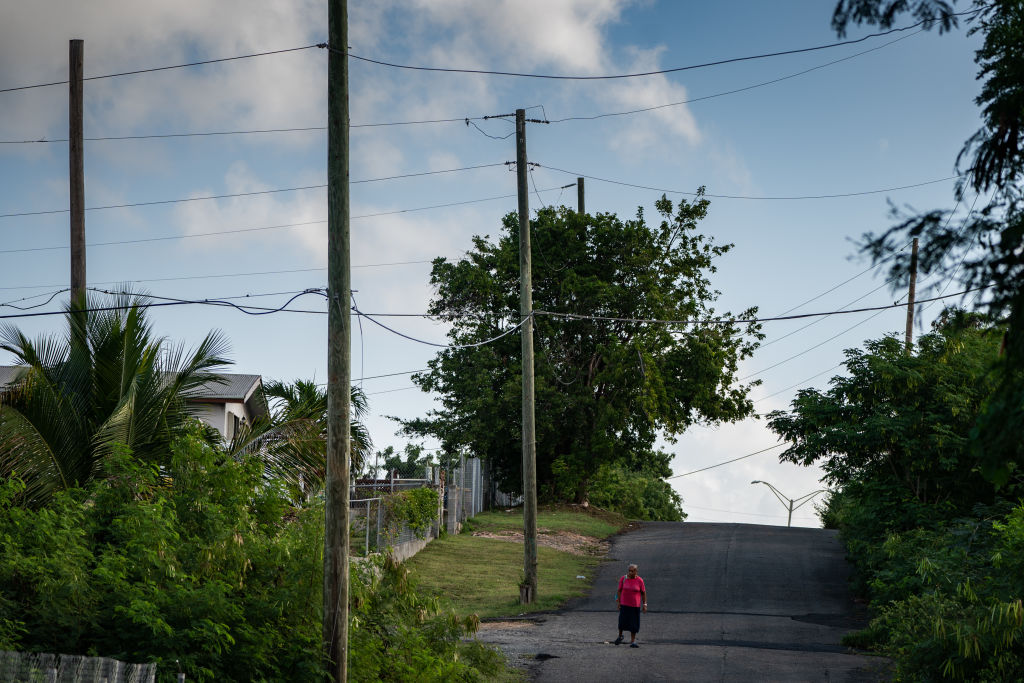
President Biden declared a state of emergency in the U.S. Virgin islands after St. Croix, the largest island in the territory, reported elevated levels of lead and copper in its water supply. Polluted water was first reported to the Virgin Islands Water and Power Authority on Oct. 13, after the EPA and the University of the Virgin Islands collaborated to collect drinking water samples in late Sept.
The EPA analyzed some of these samples for metals and found that of the 108 samples taken, 38 had more than 15 lead parts per billion, which means that water systems are required by law to take action. Multiple samples also had copper levels, which were above the health standard of 1300 parts per billion.
Health officials have said St. Croix residents in affected areas should not brush their teeth with the water or drink it. They can, however, use the water for bathing purposes. The Water and Power Authority previously distributed vouchers for water to St. Croix residents. TIME has reached out to the authority board to determine if more water vouchers will be distributed.
Controversy over sample collection
Some experts are concerned that the way samples were collected led to a misleading assessment of lead levels in the water. Marc Edwards, a Virginia Tech professor of civil and environmental engineering who helped identify the high lead levels in Flint, Michigan, said that he suspected the data was not sampled correctly.
“It looks very, very unusual.So unusual that I really don't believe it's legitimate sampling,” Edwards told TIME. “It looks more like what I've seen when people make a mistake.”
In general, when lead is found in people’s homes, it's considered to be the shared responsibility of both the homeowner and the water company, since the homeowner is responsible for ensuring that their pipes are not leaking lead into water. Utility companies often focus on proving that water is free of lead before it enters people’s private property to avoid liability, according to Edwards. Sometimes, this leads many utility companies to test for water outside of people’s homes instead of inside of people’s homes, he says.
“My guess is they went out to the water meter, which is at the property line,and unscrewed something to get a sample. They expected that to show there was no lead so they could say, see there's no lead before the property line,” says Edwards.
However, when water is collected from a water meter, it can lead to chunks of lead-brass contaminating the sample. “Anyone who has experience knows that this will create a sample with high lead that means nothing,” says Edwards.
He believes that the response to these data samples, such as Biden declaring a state of emergency, is indicative of the “pendulum swinging to the other extreme” in the aftermath of the Flint, Michigan water scandal. During that crisis, officials reportedly covered up results indicating that lead levels were high in the city’s water supply. In the case of the Virgin Islands, he thinks officials have done the opposite and sounded the alarm without robust enough data.
“They ran around and declared a Federal emergency, and they told the AP reporter that their only data was these crazy samples,” says Edwards.
How are residents of St. Croix being assisted?
The Biden administration will be directing federal assistance to help provide water, filters, and other technical assistance to those living in affected areas. It has appointed Lai Sun Yee, a principal advisor to the Department of Homeland Security, to coordinate the recovery effort for St. Croix, home to some 40,000 people.
FEMA, the federal emergency management agency, has pre-deployed some individuals to the islands to help determine what the needs of the residents are. In the meantime, officials have instructed residents to stop using tap water. Residents can either rely on bottled water or collect rainwater through cisterns as an alternative.
“To date, the Territory has provided more than 1,200 water vouchers to eligible residents in affected communities, which they can claim at several pre-established vendors on-island. Eligible residents should contact WAPA directly if they have not yet received a voucher. Jaclyn Rothenberg, FEMA Director of Public Affairs said in a statement to TIME.
“The territory has also tested more than 350 children, aged 0-6, for lead and there have been no confirmed positive results. FEMA will continue to work closely with the territory and our federal partners to identify and address any unmet needs.”
Local and federal officials are currently analyzing additional test results after conducting more detailed testing. An official report with the results of the second round of tests is expected to be available in mid-December.
More Must-Reads from TIME
- Donald Trump Is TIME's 2024 Person of the Year
- Why We Chose Trump as Person of the Year
- Is Intermittent Fasting Good or Bad for You?
- The 100 Must-Read Books of 2024
- The 20 Best Christmas TV Episodes
- Column: If Optimism Feels Ridiculous Now, Try Hope
- The Future of Climate Action Is Trade Policy
- Merle Bombardieri Is Helping People Make the Baby Decision
Contact us at letters@time.com